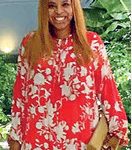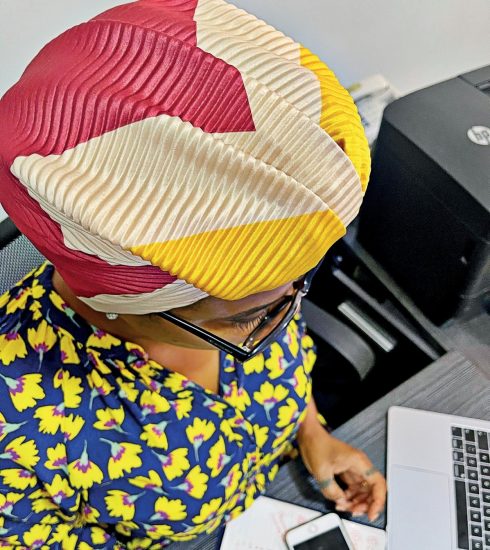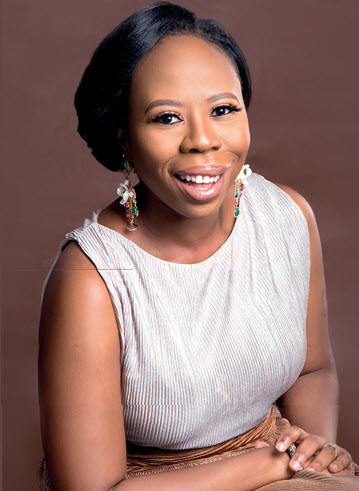Motherhood: Biologically or Otherwise
Every Mother’s Day, we honor, appreciate and celebrate the importance and influence of mothers in our lives and our society. Being a mother doesn’t necessarily have to mean having your own biological children, there are countless women who have taken up the role of motherhood and dedicated their time and effort to less privileged children. One of such women is Mrs. Kemi Ojenike, co-founder of The Destiny Trust Foundation and Rehabilitation Center, an organization that educates, supports, empowers, and caters to the needs of less privileged children. She spoke to DOWNTOWN’S Sophia Edisi about the role she plays as a mother to the children she cares for, the challenges she faces running an orphanage, and lots more.
Tell me a little bit about yourself, family, and your foundation. My name is Kemi Ojenike and I’m the cofounder of The Destiny Trust Foundation that was set up in 2012 as an initiative to respond to the troubles of street children. It was based on the personal experience of some of our co-founders who interacted with children who were uneducated and begging on the street, so we decided to investigate a little more to find out where they were based. At the time, they were living and sleeping at the Bar-beach front and so we decided to do something about it. We started by taking food to them monthly, interacting and learning more about them. We did that for six months, from August 2012 to the end of the year. We realized that we needed a more substantial intervention and so we set up a center in Ibeju Lekki called The Destiny Trust Learnings and Rehabilitation Centre which is a multi-purpose center. It serves as a formal home to street children and it’s also a center for education and a community center as well. The center is focused on three core areas. Our first focus is on education, then care and empowerment.
We believe that the best tool to help lift children out of poverty or very difficult vulnerable situations is education and so we run a range of educational programs. We have children on scholarship and we work with slum communities to enroll children in public schools. We do that every year and so the idea is we work with public schools as well to help them so that they can support the children that we have enrolled. We have children in boarding schools as well. Under the care program, we have a number of children living at the center, children that don’t have homes to go to or children that do not have a stable home environment.
They live in the center and that is where they go to school, receive health care and education. Our empowerment program which is the third leg of what we do is us knowing that not every child would go into a traditional school. Some have gone past the school-age so we try to equip them with skills, technology, and vocational skills to essentially help and empower them to be able to make a living in the future and to be able to cope with the changing world in the future; that’s where our technology program comes in. We also empower women because women are the bedrock of society and the home, and you know if the woman is sorted then there is a higher chance that the children will be fine. So we have empowerment programs for women where we help them set up work and gain access to loans to enable them to get on their feet so they too can support themselves.
How did you get involved with the orphanage?
In the beginning it was never our intention to start a center. Our intention was to find out what was really going on with the children and help them but we realized that for us to be sustainable and for us to be able to do more and invite the public to do more, we needed a structure. One of the things that we have learnt over time is if you want to do good, the first thing to do is probably not to start a foundation, you should be clear on what you want to do to confirm if there are other people that are doing it that you can work with because there are so many organizations and if the goal is to help people then collaboration would be a great way to do so but if after you have worked for a while and done your findings, you have actually started off and realized that you need a formal structure to be able to go far then you need to register an NGO with a corporate access commission. You also need to get the necessary license because we are licensed and regulated by Lagos state so you need to get that done as well.
What is the definition of a mother to you?
A mother is someone who has decided to take on the job of caring for and protecting a child. It need not be a biological mother but I believe that anyone who decides that they are interested in the wellbeing of a child and contribute their time, effort, and resources to ensure that the child has a good life, provide support and defend them; that is who I believe is a mother.
How does the role you play as mother affect or impact the lives of the children?
The way all of us as human beings are designed, we need support, love, and encouragement in life and so some of the children that come from these disadvantaged backgrounds: usually either because the mother is late or unable to care for them or there are just some reasons why they don’t have a stable living environment. They lack that support they need as they are growing up and what we try to do is to provide that support, to bridge the gap and the truth of the matter is when you do that (and because they are human like everybody else born into that type of circumstance), you notice the support helps them to be able to thrive, grow, discover their potential, to learn and realize that life can be better and believe a good life is possible for them. That motherly support helps them focus on their dreams as well as know there is actually light and good in the world and they too can be the best that they can be.
What advice would you give women who have adopted or are caregivers to children who aren’t theirs?
I think taking care of a human being is one of the most important assignments that one can ever have because in a human being, no matter the circumstances of their birth the potential and what we can be is limitless. As caregivers, as mothers even non-biological mothers, we need to deal with children with this mindset that we are caretakers; we are like custodians, it’s like God has given you something special and said “I am putting you in charge of this, take care of it for me”.
The question at the end of the day is, what sort of custodian do you want to be? Do you want to be the one that abused and maltreated a potential president, for instance, because the person was not your biological child or do you want to be the one that later in life, that child will come up and acknowledge how his or her life changed for the better because of this person. That is the way to look at it. When a child is in my care, I am a temporary custodian to the child and I need to do my work very well so that at the end of the day I will be proud of the outcome and my contribution to this child. It doesn’t matter if the child is your biological child or not, as far as a human being is in your care we must treat them with the utmost responsibility and love.
Taking care of non-biological children is not the responsibility of some people and I know that not everybody can set up an orphanage or a learning center, but we all should sort of have a heart to contribute to the well-being of another person. Everyone has something to give or contribute to improve our society and it’s the little contribution to the lives of other people without expecting any reward that will actually transform our country.






